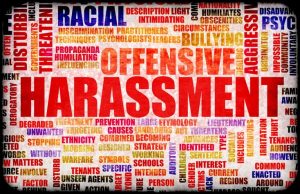In an age where students are more connected digitally than ever before, paradoxically, many are experiencing a lingering sense of loneliness and isolation. This phenomenon is particularly prevalent among university students, who are often away from their support networks and facing the pressures of academia and the transition into adulthood. This sense of loneliness can have serious consequences on their mental health and overall well-being.
Enter artificial intelligence (AI) – a tool that is increasingly being used to combat loneliness among students. AI has the potential to provide personalized support and companionship to students who may be struggling with feelings of isolation. From virtual mental health chatbots to AI-powered social platforms, there are countless ways in which AI can be harnessed to help students feel more connected and supported.
One of the most significant ways in which AI is being utilized to tackle loneliness among students is through mental health chatbots. These AI-powered programs are designed to simulate natural conversation with users, providing them with a safe space to express their thoughts and feelings. These chatbots can offer support, resources, and encouragement to students who may be feeling overwhelmed or isolated. By providing a non-judgmental and confidential space for students to talk about their mental health, these chatbots can help break down the barriers that often prevent students from seeking help.
Another way in which AI is being used to combat loneliness among students is through AI-powered social platforms. These platforms are designed to connect students with like-minded individuals, helping them to find community and support in a digital space. By using algorithms to match students based on their interests, backgrounds, and values, these platforms can help students form meaningful connections and combat feelings of isolation.
Furthermore, AI can also be used to provide personalized support to students experiencing loneliness. By analyzing data on students’ behavior and interactions, AI can identify students who may be at risk of feeling isolated and provide targeted interventions to support them. Whether it’s sending a personalized message of encouragement or suggesting resources for forming new connections, AI has the potential to provide tailored support to students in need.
However, while AI has the potential to help combat loneliness among students, there are also concerns about the ethical implications of using AI in this way. There is a risk of AI perpetuating feelings of isolation by replacing human connection with artificial interactions. It is crucial that AI is used as a supplement to, rather than a replacement for, human support and companionship.
In conclusion, AI has the potential to be a powerful tool in combating loneliness among students in the digital age. By providing personalized support, facilitating connections, and offering a safe space for students to express themselves, AI can help students feel more connected and supported. However, it is essential that AI is used ethically and in conjunction with human support to ensure that students receive the holistic care they need to combat feelings of loneliness and isolation.



